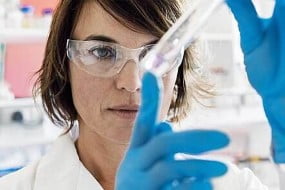Role of Diagnostics in the Antimicrobial Resistance
Explore how diagnostics can be used to prevent antimicrobial resistance, with this online course from the London School of Hygiene & Tropical Medicine.
Who is the course for?
This course is intended for health professionals, such as clinicians, nurses, nurse-practitioners, pharmacists, lab managers, technicians, faculty and students. It would also appeal to anyone with an interest in the field of antimicrobial resistance.
What topics will you cover?
This course is organised in six weekly modules, according to the following topics:
Week 1: Introduction to the role of diagnostics in the response to AMR
Week 2: Common clinical syndromes
Week 3: Healthcare associated infections
Week 4: Enteric infections and the One Health approach
Week 5: Mycobacterium tuberculosis and Neisseria gonorrhoeae
Week 6: The future is in our hands
What will you achieve?
By the end of the course, you‘ll be able to…
Reflect on Antimicrobial Resistance (AMR) and how it is caused
Describe the top causes of AMR (linked to WHO and CDC priority list of pathogens) such as Gram negatives bacterial pathogens causing urinary tract infections (UTI) and healthcare associated infections (HAIs), sepsis and gonorrhoea
Explain the role of diagnostics in reducing the threat of AMR and in more targeted use of antibiotics use for above conditions
Reflect on the role everyone has to play in the fight against AMR both for now and the future.
User Reviews
Be the first to review “Role of Diagnostics in the Antimicrobial Resistance”
You must be logged in to post a review.







There are no reviews yet.